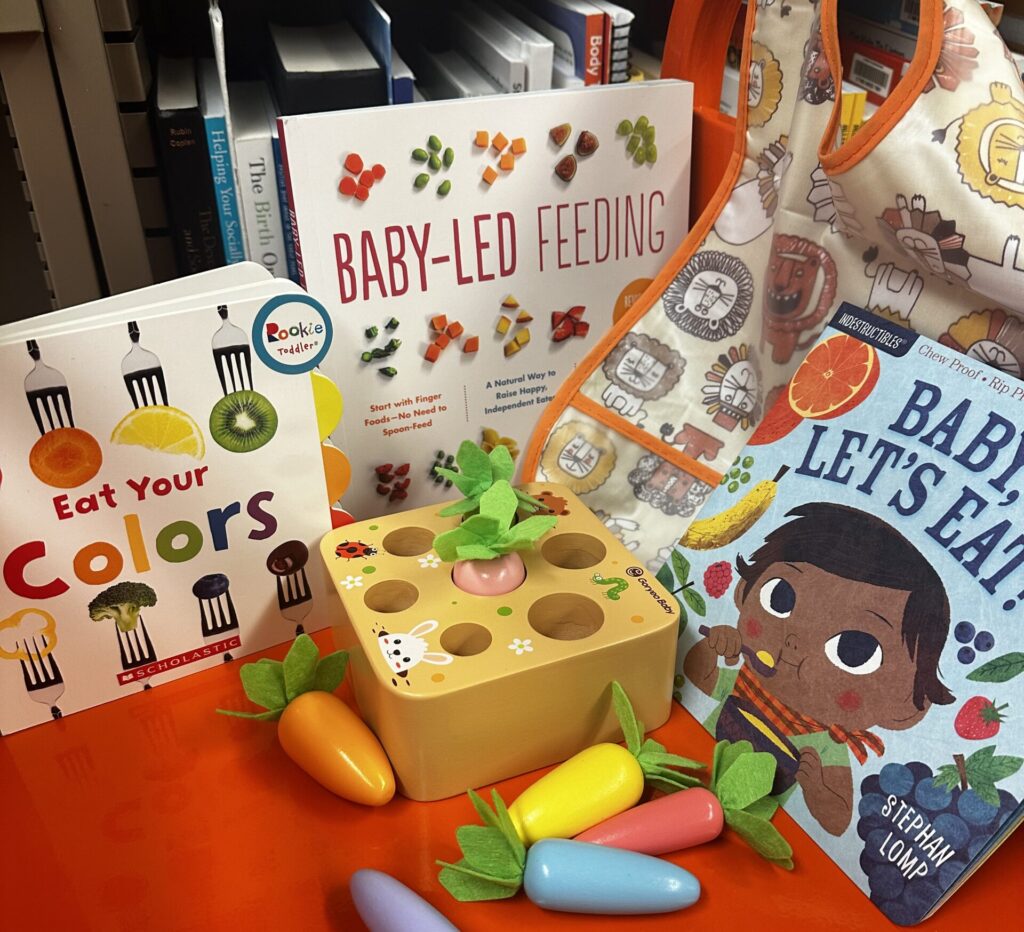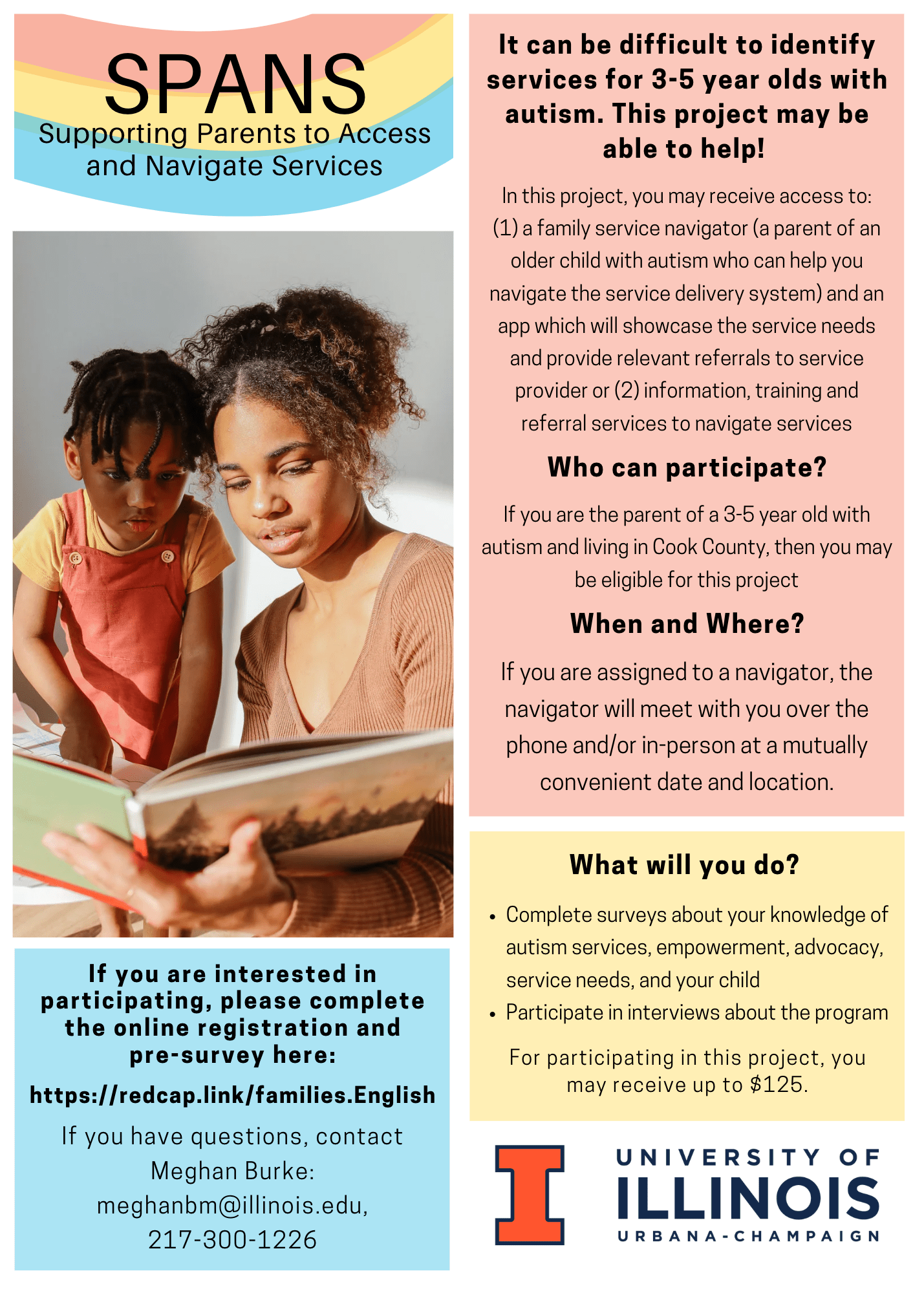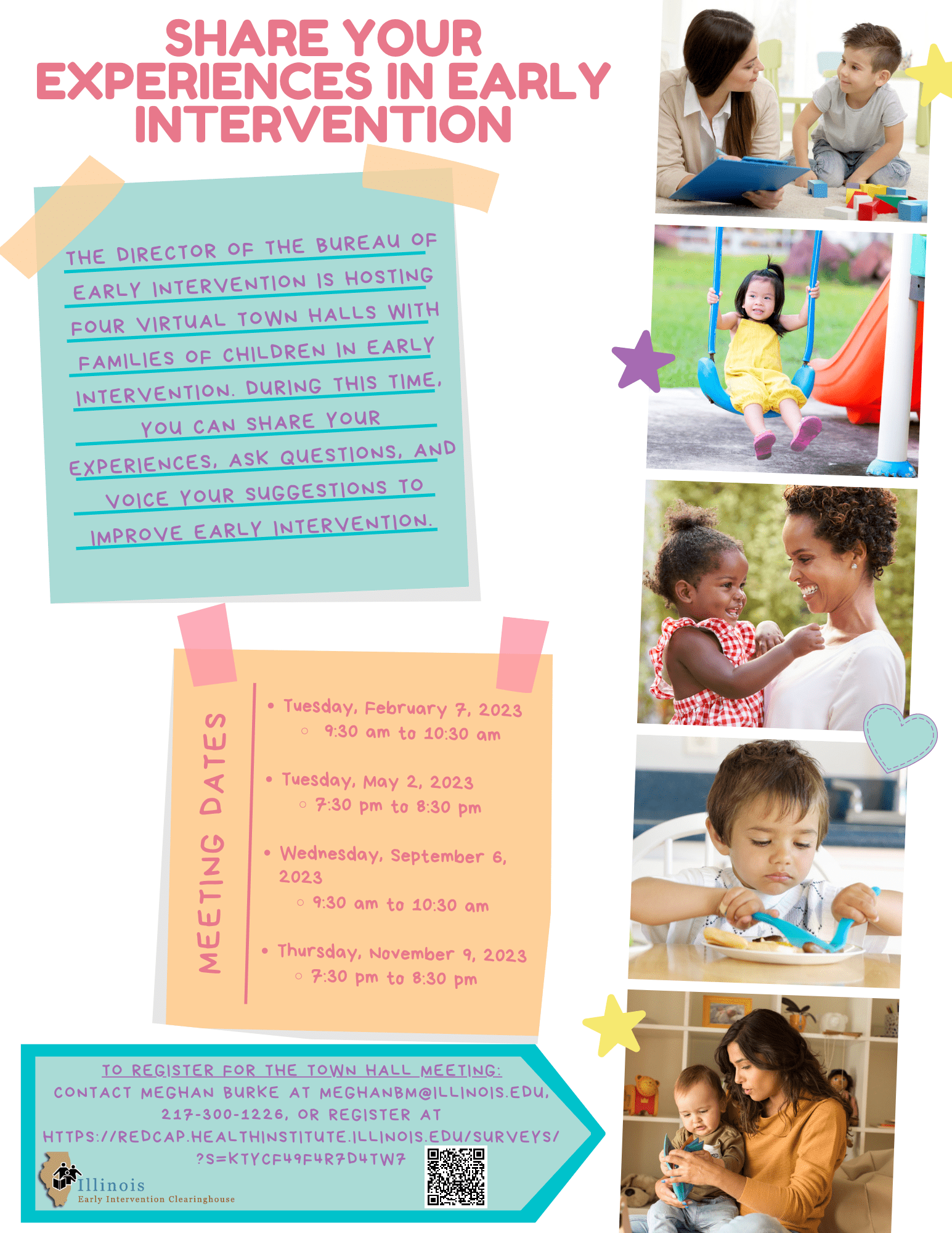Responsive feeding is a child-led approach to helping infants and toddlers enjoy eating and learn new skills.
“We’re prioritizing our child’s communication and their growing independence.”
– Stephanic Cohen, SLP
Video Spotlight: Transition to Solid Foods
How to Help Babies and Toddlers Enjoy Mealtimes
Stephanie Cohen, M.A., CCC-SLP, CLC
Overwhelmed by all the information out there about how to help your baby learn to eat solid food? Start with responsive feeding! Responsive feeding is a child-led approach to helping infants and toddlers enjoy eating and learn new skills. This means we let babies and toddlers lead the way and respond promptly when they communicate that they are hungry or full. It also means we notice which foods they are interested in at the meal and offer those foods in a safe way. And lastly, we do all we can to help them be as independent as possible and learn to self-feed from the start. Responsive feeding is recommended for infants and toddlers by the American Academy of Pediatrics and the World Health Organization. This approach can help family mealtimes be more positive and enjoyable and lead to stronger family relationships, more consistent growth patterns, a more varied diet, less conflict at mealtimes, and greater independence at mealtimes.
- You can start responsive feeding from birth by learning how your baby tells you they are hungry or full and responding promptly.
- You can continue to use responsive feeding when you introduce solid foods to your baby.
- We can let children lead the way at mealtimes through toddlerhood and beyond!
Find signs that your baby is hungry and ways to help your baby to feed independently in the full article
Enter our Giveaway!
Enter to win!
Spending time together while reading aloud helps to create strong parent-child bonds and promotes healthy brain development. Complete the entry form below for a chance to win a read-aloud prize package!
All entries received by 7/31/2023 will receive a gift in the mail.
The winner can choose the preferred language for books.

Recommended Books and Resources
Responsive Feeding for Young Children
Your relationship with your child is essential to happy and successful mealtimes! Using responsive feeding at mealtimes means that you support your child’s independent eating, pay attention to their communication, respond promptly, and let them lead the way. As a parent, you can give your child rich opportunities to learn about food and avoid deciding for them what they eat and how much. Doing these things can lead to less mealtime stress and more enjoyment at the table!
Responsive Mealtimes are about
- Trust
- Togetherness
- No pressure
- Clear expectations
- Opportunities | Not demands
- Conversation | About things other than food
Family Benefits
- Less family conflict and stress at mealtimes
- Teaches a child to naturally self-regulate food intake
- Promotes child’s self-feeding skills and overall development
- Children may learn to eat a wider variety of foods
Thanks to the Chicago Feeding Group for sharing this graphic fact sheet.
Eating Tips and Recipes
Leia Flure, MS, RD, LDN Extension Outreach Associate, University of Illinois Extension
For many families, meal and snack times can be a challenge. Whether you have a picky eater or just don’t have enough hours in the day, here are some ideas that can help you to make these times more enjoyable for the whole family.
Involving Kids with Meal Planning
Getting your kids involved in the kitchen can teach them important life skills. It can also encourage them to try new foods. A great place to start is having them help you plan meals.
- Guided Choices. Allow your child to help decide what’s for dinner. This could be letting them choose between carrots or broccoli for the dinner’s vegetable or letting them choose between pizza or tacos for the main dish.
- Make Dinner a Theme Night. Try having a “theme” for dinner. It could be based on your child’s favorite book, a cuisine that your family likes, or even your child’s favorite color! This can make mealtimes more fun for the whole family.
Feeding Your Picky Eater
It can be frustrating to feed your picky eater! It is common to feel like nothing you try can work, no matter how hard you try. If you’re stuck in a rut with your picky eater, here are some guidelines to help. Remember, every kid is different, so not all of these tips will work for everyone.
- Make Meal Times Pleasant. Turn off televisions and tablets to reduce distractions. Bonus points if you want to set a calming mood for the meal with relaxing music or even just a calm conversation.
- Continue to Offer Foods (Even If They Did Not Like It the First Time)! Try preparing them in a variety of ways, including hot and cold, raw and cooked, and with different preparations.
- Eat the Way You Want Your Child to Eat. Children pick up on how others around them eat, and often, will try to eat similarly.
For recipes and more tips, see our Eating Tips and Recipes blog post.

Need an iPad or a Hotspot for Live Video Visits?

Many families are receiving Early Intervention services through live video visits. To help families with technology needs, the Early Intervention Clearinghouse has added several technology devices to the lending library:
- iPads with a cellular data plan (device and Internet access)
- iPads without a cellular data plan (device)
- Hotspot with cellular data plan (Internet access)
To request a device, please complete our Device Loan Request Form (also available in Spanish). For more information about live video visits, see our tip sheet Introduction to Early Intervention (EI) Live Video Visits: Frequently Asked Questions (also available in Spanish).
Research Opportunities
Supporting Parents to Access and Navigate Services
With the Family Resource Center on Disabilities, we are looking for families of 3-5 year olds with autism living in Cook County. Families participating in our project may receive a family navigator to help the family access services for their autistic child. Families will be compensated for their participation. If interested, please complete the online registration and pre-survey at https://redcap.link/families.English If you have questions, please contact Meghan Burke at meghanbm@illinois.edu or 217-300-1226.

Upcoming Events
Early Intervention Town Halls (Virtual)
The Director of the Bureau of Early Intervention is hosting four virtual town halls with families of children in early intervention. During this time, you can share your experiences, ask questions, and voice your suggestions to improve early intervention.
Upcoming Meeting Dates:
Wednesday, September 6, 2023
9:30 am to 10:30 am
Thursday, November 9, 2023
7:30 pm to 8:30 pm
Register online for the town hall meeting or contact Alejandra Griffet, by email: agriffet@illinois.edu or by phone: 217-333-5841


